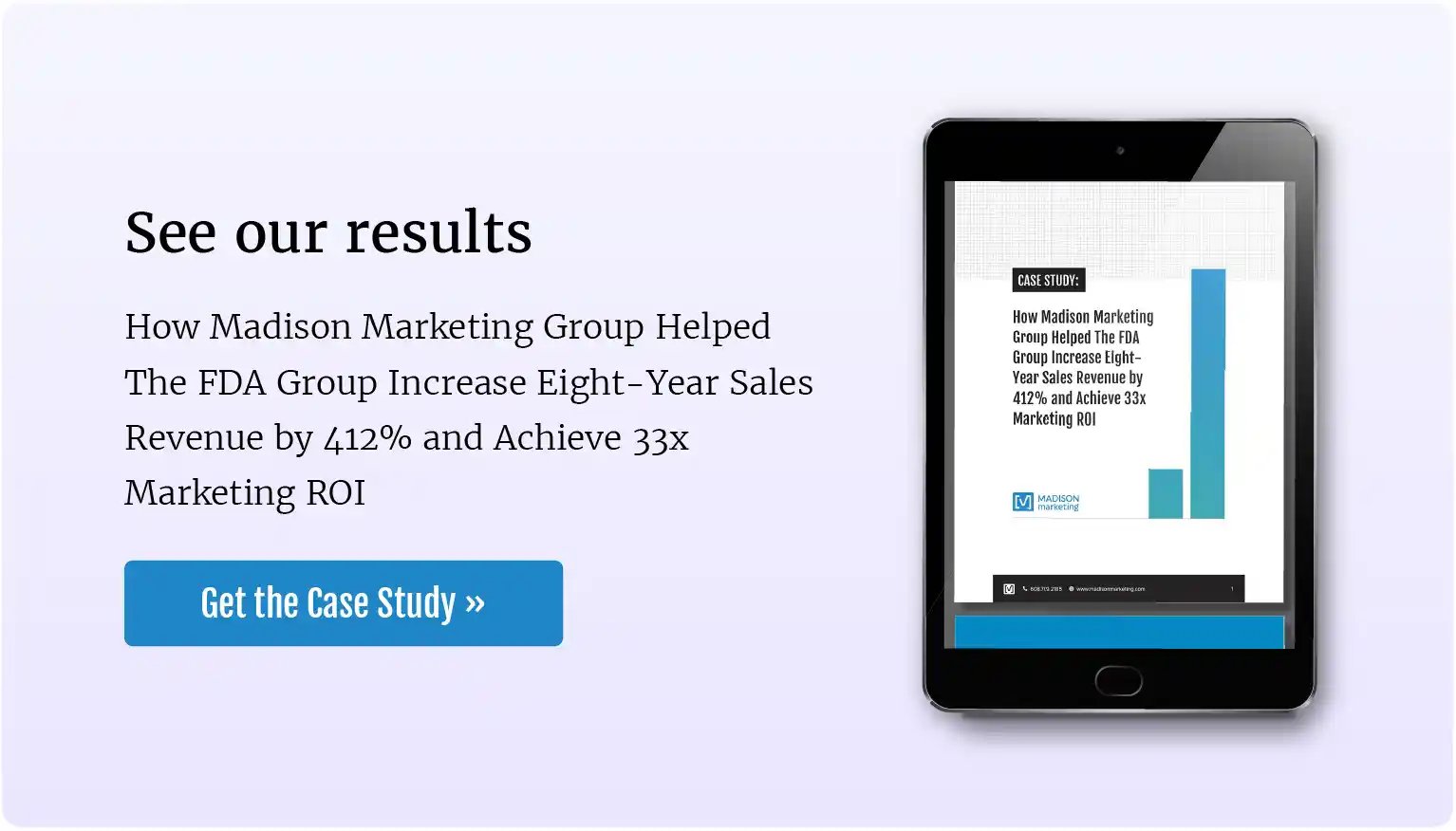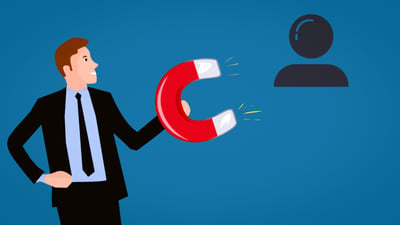Jump to:
Every business relationship has a lifecycle. Some end naturally when a project wraps. Others evolve as both parties grow. But many simply expire—continuing on paper while the actual value exchange has long since disappeared.
This is especially true with HubSpot agency partnerships.
We've spent years helping mid-sized companies navigate the HubSpot ecosystem as a certified partner. Over that time, but especially over the past few years, we've noticed a clear pattern in our conversations with teams switching from either very large HubSpot agencies (often Elite tier partners) or tiny freelancer operations who market themselves as HubSpot specialists. These discussions have revealed some "universal" warning signs that a HubSpot agency relationship has reached its expiration date.
Let's explore those signs without sugar-coating anything.
Sign #1: Your HubSpot agency has a revolving door of account managers
You've probably experienced this scenario: You spend months getting an account manager up to speed on your business, industry, and HubSpot implementation details. Just as they start truly understanding your needs, they're reassigned, promoted, or leave the company—and you're back to square one with someone new.
This isn't just annoying. It's dysfunctional.
Each reset means lost institutional knowledge, inconsistent execution, and hours spent repeating yourself. For companies with complex HubSpot setups or custom integrations, this means your marketing automation never gets a chance to mature beyond surface-level configurations.
Why does this happen?
- Large HubSpot agencies (particularly those chasing higher tier status in the Solutions Partner Program) often use junior positions as stepping stones, creating high turnover.
- Others spread account managers too thin across dozens of clients, leading to burnout.
Ask yourself: Have you had to "start over" with new HubSpot specialists more than once in the past year? If so, your platform effectiveness is likely suffering as a result.
Sign #2: You're stuffed into rigid HubSpot service packages that don't quite fit
There's a profound difference between a HubSpot agency that builds a custom strategy for your specific needs and one that fits you into pre-defined service tiers.
This rigidity is a common frustration we hear from companies leaving large HubSpot partners.
|
The workflow typically looks like this:
|
Some cookie-cutter HubSpot approaches genuinely work for certain businesses. But companies with complex sales processes or unique automation needs require tailored strategies. When your HubSpot agency resists customization, it's often because their business model literally can't support it—they've scaled by standardizing their HubSpot services, not by adapting them.
Ask yourself: Do you constantly hear "that's not included in your HubSpot management package" or "that's not how HubSpot is meant to be used" when requesting changes to your automation program?
Sign #3: Communication about your HubSpot implementation feels bureaucratic rather than collaborative
Working with a HubSpot partner should feel like a partnership. But many companies describe their agency relationships as feeling more like dealing with a cable company's customer service department:
|
As HubSpot agencies grow, they often implement systems designed to maximize efficiency rather than effectiveness. These processes make sense from their operations perspective, but they often (inadvertently) create distance between you and the people actually configuring your HubSpot portal.
Ask yourself: When was the last time you had a spontaneous, productive conversation with someone who actually works on your HubSpot implementation? If you can't remember, that's a problem.
Sign #4: Strategy sessions feel like HubSpot upsells
This is particularly common with agencies heavily incentivized by the HubSpot Solutions Partner Program's tiered structure.
You schedule a strategy session to discuss your marketing goals, but somehow the conversation keeps steering toward additional HubSpot features or hub upgrades you should purchase. The recommended solutions always seem to involve buying more HubSpot products (upgrading from Marketing Hub Professional to Enterprise, adding Sales Hub, purchasing Operations Hub, etc.) rather than refining your approach with existing tools.
To be clear, sometimes new HubSpot functionality genuinely helps. Especially in 2025, HubSpot has been rolling out incredibly useful new tools at a dizzying pace—and many of them should be operationalized.
But when an agency consistently recommends product upgrades without exhausting the capabilities of what you already have, they might be prioritizing their HubSpot partner tier status metrics over your actual needs.
Ask yourself: Does your agency seem more interested in selling you HubSpot upgrades than improving results with your current subscription level?
Sign #5: Your HubSpot execution feels generic despite your company being unique
Maybe the most alarming sign is when your HubSpot implementation starts feeling interchangeable with any other company in your industry.
This usually happens when agencies prioritize efficiency over effectiveness, using templated workflows, sequences, and landing pages that work "well enough" across all clients. The result? Email sequences that could be sent by any competitor. Landing pages that generate form submissions but not qualified leads. Automation workflows that move contacts through stages but don't reflect your actual sales process.
True HubSpot effectiveness comes from deeply understanding what makes your company different, then configuring the platform to express that difference consistently across all touchpoints. When an agency lacks either the capacity or inclination to do this deep work, your HubSpot implementation inevitably becomes generic.
Ask yourself: Would your HubSpot-generated marketing materials and automations still make sense if you replaced your company name with a competitor's? If yes, you're not getting the customized implementation you deserve.
Sign #6: You've outgrown a one-person or tiny HubSpot agency
Some relationships end not because they're failing but because one party has outgrown the other. This often happens with freelancers or micro-agencies that were perfect when you needed basic HubSpot setup but now struggle to keep up with your expanding platform needs.
|
The warning signs here include:
|
This isn't necessarily anyone's fault—it's simply a mismatch of scale. But continuing the relationship often means limiting your HubSpot utilization to match their technical capacity.
Ask yourself: Have you had to scale back your HubSpot automation ambitions to accommodate your agency's technical limitations?
Sign #7: Your HubSpot results have plateaued despite increasing investment
Perhaps the most objective sign of a misaligned relationship is stagnant results despite consistent or increasing investment in both HubSpot and your agency partner.
HubSpot performance often follows an S-curve: rapid improvement in the beginning after implementation, followed by steady growth as workflows and processes mature, and eventually a plateau. A skilled HubSpot agency should recognize approaching plateaus and proactively recommend strategic shifts to find new growth avenues within the platform.
If your agency seems content with maintaining the status quo—or worse, continues selling you the same approach despite diminishing returns in your HubSpot performance metrics—they've either run out of ideas or become complacent with your account.
Ask yourself: When was the last time your agency proactively recommended a significant strategic adjustment to your HubSpot implementation based on performance data? If it's been more than a year, they may be running on autopilot.
Finding the "Goldilocks Zone" in HubSpot partnerships
After years of helping companies navigate these challenges, we've observed that many find success in what we call the "Goldilocks zone" of HubSpot partnerships—agencies neither too big nor too small, but just right for their needs.
These mid-sized HubSpot partners typically offer:
- Consistent teams that build deep knowledge of your business and HubSpot configuration
- Full-service HubSpot technical capabilities without excessive outsourcing
- Direct access to HubSpot specialists actually doing the implementation work
- Customized automation strategies that adapt to your unique sales process
- A balance between proven HubSpot frameworks and creative approaches to your specific challenges
Every business has different needs, and there's no universal "right size" for a HubSpot partnership. Some enterprises genuinely need large Elite-tier partners with global reach. Some startups are perfectly served by specialized HubSpot freelancers.
But if you're a mid-size company with complex offerings and limited internal HubSpot expertise, the warning signs above deserve your attention. They often indicate you've fallen outside an agency's optimal client profile, whether you're too small to get their best resources or too complex for their standardized HubSpot approach.
How to evaluate your next HubSpot partnership 📋If you're seeing these warning signs and considering a change, look beyond typical metrics like HubSpot partner tier status and industry experience. Instead, ask potential partners:
|
The responses will tell you whether an agency prioritizes their operational efficiency within the HubSpot ecosystem or your actual business objectives, and help you find a partnership that actually grows with you rather than apart from you.
Ready to have a conversation about finding the right HubSpot partnership for your needs? Contact us to discuss how a mid-sized HubSpot agency approach might better serve your unique challenges.
Topics: Working with an Agency






